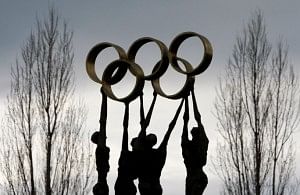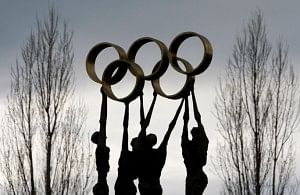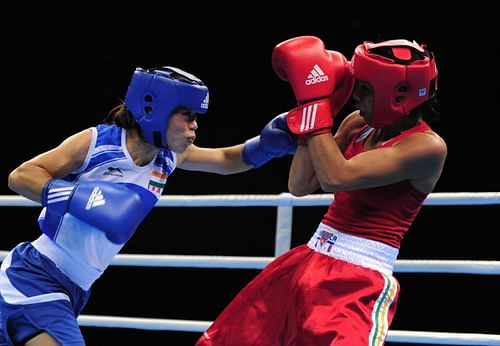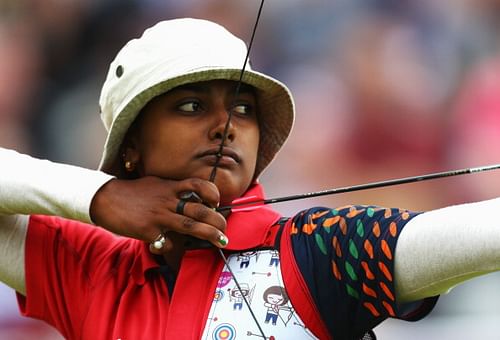
India at the Olympics: why we fail and what to do about it

The Olympics is indeed the greatest and the most significant sporting extravaganza known to mankind. Widely viewed and followed by fans all over the globe, it is a dream pantheon for athletes; surreal in magnitude, indomitable in spirit. The Olympics gives the athletes a chance to win, to prove their supremacy, challenge and explore man’s physical limits, to defy and re-invent preset notions and to leave viewers all over the globe both in shock and awe. Moments like these leave permanent impressions on the fabric of time, living forever in the consciousness of all the individuals who were fortunate enough to witness it. The Games have definitely come a long way from the way the Greeks envisaged it, but the spirit of Citius, Altius and Fortius remain, being reinstated and reestablished with every edition.
However, the essence and importance of the Olympics takes a humble beating in the hands of a prejudiced and indifferent sporting fraternity in India. Revolting as it may seem, the Olympics for us is severely diminished both in significance and importance. For most of our population the Olympics is nothing more than just another sporting headline in the newspaper, tussling for some space in light of the ongoing bilateral cricket series between India and Sri Lanka.
With such abject disinterest and indifference to the Games, coupled with the disastrous and uninspiring Olympic history of the country, it is no surprise that neither the media nor the Indian public treats it seriously. The image of a dejected and defeated Indian Sportsman, doesn’t draw any compassion or sympathy, but just grimaces; slaughterous and acrimonious remarks and irrational arguments regarding the Government’s folly in investing their time and money in such activities. The apathy of the athlete who trained 4 long years and just had his Olympic dream crushed doesn’t mean a thing to them. This is primarily the attitude that keeps us from getting our share of Olympic glory, our very own Olympic legacy.
The recent past has however seen a slight ray of hope in the Indian sports scenario. With the emergence of Olympic Champions like the impeccable Gagan Narang, and the industrious and indomitable Saina Nehwal, marksmen Vijay Kumar and the dashing Mary Kom, the nation has found its share of heroes, legends and idols that are sure to inspire future Olympians from our nation. But, a lot still needs to be done to establish India as a force to reckon with in the domain of sports and athletics.
Scouting talent

LONDON, ENGLAND – NOVEMBER 25: Mery Kom Hmangte of India (Blue) punches Pamela Paoloa Benavidez of Argentina during their quaterfinal, 48kg-51kg bout at ExCel on November 25, 2011 in London, England. (Photo by Jamie McDonald/Getty Images)
First and foremost we need to ensure that we develop our youth academies, engage in extensive scouting for raw talent and help them realize their full-potential. India’s economic disparity, illiteracy and poverty are major blockheads that need to be overcome to achieve the same. Majority of the sporting talent in the country develop in rural villages and among the lesser privileged class. Be it Deepika Kumari, Mary Kom or Vijender Singh, all of these stars had very humble beginnings. The above mentioned sports-persons have been through a lot of adversaries and obstacles on their way to becoming national heroes. However, such perseverance and determination is not a common virtue and many a budding sportsman would give up in face of the several adversaries that an upcoming sportsman has to face in this country. We need to develop a system to protect such young talent, give them a conducive environment to exercise their potential. The youth system at Bhiwani that produced India’s boxing superstars like Akhil Kumar and Vijender Singh is a great example for the same, and similar initiatives needs to be carried out in a much larger scale across the whole nation.
We also should form bodies and associations that regulate and improve the quality of competition at the school and college levels. We need to develop a model of college sports similar to the one followed in USA. In such a format, any budding sports player can excel at the college level and catch the attention of national selectors. Corporates should also be encouraged to come up and develop professional leagues that ensure a sustainable future for these individuals, and a chance to showcase their talents and compete against the best in the country. The success stories of the NBA and the NFL more than validate this reasoning, and maybe it is high time we acted on similar lines.
Lack of Professionalism
The utter lack of professionalism in which the associations run the respective sporting bodies, is another major reason for the repugnant legacy that Indian sports has descended into. With power hungry barons presiding over matters and the lack of sporting experience at the highest level being easily visible, the sportsman and the authorities are always engaged in a continuous tussle where finding common ground is almost impossible. The difference in backgrounds and the abject refusal to resolve the same has resulted in the sports degrading to the form it is today. The apathy continues with the sub-standards being followed in terms of sporting equipment and training facilities. The sporting bodies fail to provide the sportsman with the bare minimum in terms of equipment and sporting facilities. With almost no equipment to train with, it then becomes the prerogative of the player to resort to desperate measures, to find alternate solutions, and in several cases have to cut into their own savings. Thus we need to ensure that such sporting bodies are helmed by individuals who have been associated with the sport at some level or the other.
The past few years has however seen a slight improvement in this regard. With Government associations joining hands with firms such as Olympic Gold Quest and the Mittal Foundation, the sporting scene in India has improved a significant bit. These organizations support and sponsor the athletes with the help of the Government agencies, take care of their training and other needs. Several athletes such as Mary Kom, and Saina Nehwal have benefited from such associations. Such ventures definitely have paved the way for many future Olympians to have a hassle-free career, and concentrate all their efforts and energy into the sport. Such ventures need to be encouraged and more forays should be made into the same domain.

LONDON, ENGLAND – AUGUST 01: Deepika Kumari.
The Government also needs to ensure that all sports-persons are educated in the field of Sports Science. This would help them develop a better understanding of their dietary requirements, and thus would be able to decide on a proper nutrition routine to make the maximum of their potential. They also need to be properly guided in the domain of physiotherapy, so that they could avoid injuries and perform at their peak.
The Indian Government should also ensure that they get proper psychological training so that they remain focused and motivated, and are able to successfully extinguish any sense of doubts or misconceptions that might hamper their self-belief and confidence. The players also need to be given a lot of exposure at the highest levels and should be encouraged to participate in many International meets and sporting events. This helps them to garner some much-needed experience, building up their temperament and confidence.
The importance of such measures can be easily understood by the reasons that Deepika Kumari cited as the prime reason for her failure. A dejected Deepika said” Jab tak samajh paate, sab khatam ho chuka tha”. She didn’t lose because of her skills with the bow and arrow, but because she couldn’t focus herself amidst the hype and expectations that had been levied on her young shoulders. Such hype, media exposure and pressure was an unknown commodity for the 18-year old from Ranchi and she welted under the pressure. If only she had the opportunity to train under a psychologist the story might have been so much different.
Media promotion
Another major motivational factor for athletes and sportsman is the media attention and the glamor that comes with sports. Other than cricket most sports in India fail to garner much media attention. Many a significant achievement in the field of sports has gone unnoticed, and this lassitude has been a major detrimental force to the apathy that surrounds the sport today. It not only inspires a sense of antipathy, exasperation and disgruntlement, but also breaks down the spirit of the individual who would have put his whole body, heart and soul into the single performance winning laurels for his nation. This abject indifference inspires both disgust and also results in a sense of mediocrity creeping in. Most of the athletes playing today, are aware of the fact that the nation’s public and the sports association don’t have high hopes from them and their losses would be treated with a sense of inevitable disdain, while even victory would raise questions about the credibility of the competition itself.
With the media and the public sharing such a disgraceful attitude towards the sports and the sportsmen, players find it very difficult to find motivation and courage to pursue higher goals in the sport. They become submissive and rather than trying to fight the odds, conveniently submit to the situation. This escapist mind-set drives many of them to work just hard enough to represent their respective state or country at some sport. Once achieved they are more than happy to sit back and enjoy the perks that the accomplishment guarantees. A government job, subsidy in some goods, free train travel and other minuscule monetary gains matter more to them than the glory of an Olympic medal. The spirit of Olympics is a distant memory, with simple daily needs far than over-riding the desire to win a medal.
Further on, India’s resurgence in the last decade, combined with the increased liberalism, globalization and the IT revolution has seen an increasing inclination towards academics. In a nation where a major part of the population still struggles to fulfill the most basic needs, fighting against reduced life expectancy, poverty and a life-long struggle for survival, the emergence of a definitive income source was more than just an opportunity. The vivacity that defines the resurgent India derives its strength from the difficult past of economic anonymity and ineptness. However, liberalism opened up a window for the subjugated middle-class population of the nation, giving them a chance to render themselves free of the shackles of communalism, provincialism and the imbalance of the caste system. Thus, with a window being opened, the pressed masses turned to this opportunity with all their zeal. So much so that parents in their desperation to ensure a success stories of their children, try to ensure that their wards give primary importance to education and ignore sports as an unnecessary evil. Such a mentality saw quite a few Vijender Singh’s and Milkha Singh’s being transformed to technicians and corporates, trying to make sense out of a sophisticated program or trying to fake their accent into something more American like or whatever we have successfully degenerated the language into.
Yes, we did develop our economy and have established ourselves as one of the emerging economies in the World, cheering and exulting at every high or low in our stock-market, but are we being true to ourselves? A cursory glance at the children playing in a nearby play-ground brings back nostalgic memories of what it could have been. Yes, we do end up picking huge pay-packets but does it mean anything if one doesn’t find happiness doing the same. As some wise men say ”the true happiness in life lies in uniting your avocation and vocation”. Wise words indeed!! India’s status as a super-power can never be realized until we achieve a holistic approach and build an encouraging environment that goes on with our new-found belief in liberalism.
As, I sit finishing this article, my 8-year old cousin joins me on the sofa and switches on the TV.`After some cursory browsing through the channels, he settles on a recap of Devendro Singh’s pre-Quater final bout. The unrelenting and incessant Devendro got him all excited, and he started jumping in delight, emulating his punches on the couch cushions. As my cousin revelled in every punch that Devendro connected with, and anguished at every hit he took, I realized that this is the real definition and identity of the Olympics. This is the spirit that can fuel and inspire our youth to pursue their sporting abilities and bring laurels to their nation. The London Games might not have been a huge success story, but with the emergence of young sporting heroes like Purapalli Kashyap and Devendro Singh, the future does look very promising. India shining? not yet; but its about time we did something about it. Signing off, with hope that Rio 2016 would see a better turn of events for our nation.